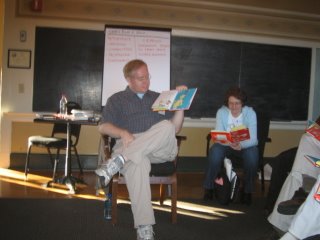OST changing form in the Russian-speaking world?
On Runet (the Russian language Internet) Various online forums also report having experiences with OST as people run meetings called OST, but not really run on OST principles.
Might this be a familiar refrain which brings us back to the age-old question of how do we guarantee quality of OST meetings run around the world?
In one example, in an OST meeting, a “training: Our children: child-rearing issues” one participants writes that she “didn’t like” OST.
Others on the forum share other, more positive experiences of OST and invite her to further explore the method.
In another intriguing development, a Moscow coaching program offers training in the “Open Space model,” listing Harrison Owen and Birgitt Williams as co-authors. The material further refers to the role of the Creative Person in this model. Some might wonder, are Harrison Owen and Birgitt Williams teaching something in Russia that the rest of the OST community is not aware of?!



